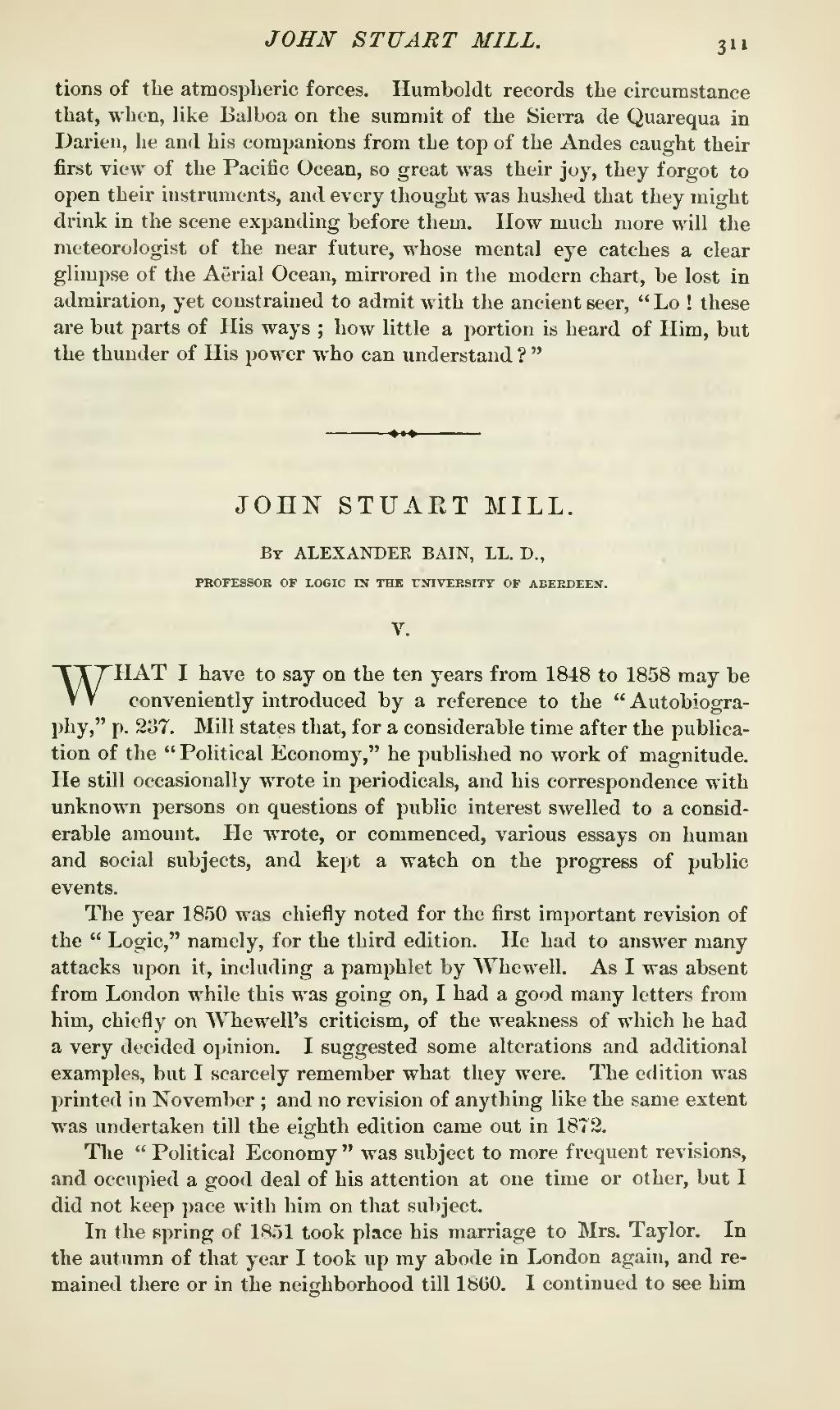tions of the atmospheric forces. Humboldt records the circumstance that, when, like Balboa on the summit of the Sierra de Quarequa in Darien, he and his companions from the top of the Andes caught their first view of the Pacific Ocean, so great was their joy, they forgot to open their instruments, and every thought was hushed that they might drink in the scene expanding before them. How much more will the meteorologist of the near future, whose mental eye catches a clear glimpse of the Aerial Ocean, mirrored in the modern chart, be lost in admiration, yet constrained to admit with the ancient seer, "Lo! these are but parts of His ways; how little a portion is heard of Him, but the thunder of His power who can understand?"
| JOHN STUART MILL. |
By ALEXANDER BAIN, LL. D.,
PROFESSOR OF LOGIC IN THE UNIVERSITY OF ABERDEEN.
V.
WHAT I have to say on the ten years from 1848 to 1858 may be conveniently introduced by a reference to the "Autobiography," p. 237. Mill states that, for a considerable time after the publication of the "Political Economy," he published no work of magnitude. He still occasionally wrote in periodicals, and his correspondence with unknown persons on questions of public interest swelled to a considerable amount. He wrote, or commenced, various essays on human and social subjects, and kept a watch on the progress of public events.
The year 1850 was chiefly noted for the first important revision of the "Logic," namely, for the third edition. He had to answer many attacks upon it, including a pamphlet by Whewell. As I was absent from London while this was going on, I had a good many letters from him, chiefly on Whewell's criticism, of the weakness of which he had a very decided opinion. I suggested some alterations and additional examples, but I scarcely remember what they were. The edition was printed in November; and no revision of anything like the same extent was undertaken till the eighth edition came out in 1872.
The "Political Economy" was subject to more frequent revisions, and occupied a good deal of his attention at one time or other, but I did not keep pace with him on that subject.
In the spring of 1851 took place his marriage to Mrs. Taylor. In the autumn of that year I took up my abode in London again, and remained there or in the neighborhood till 1860. I continued to see him

